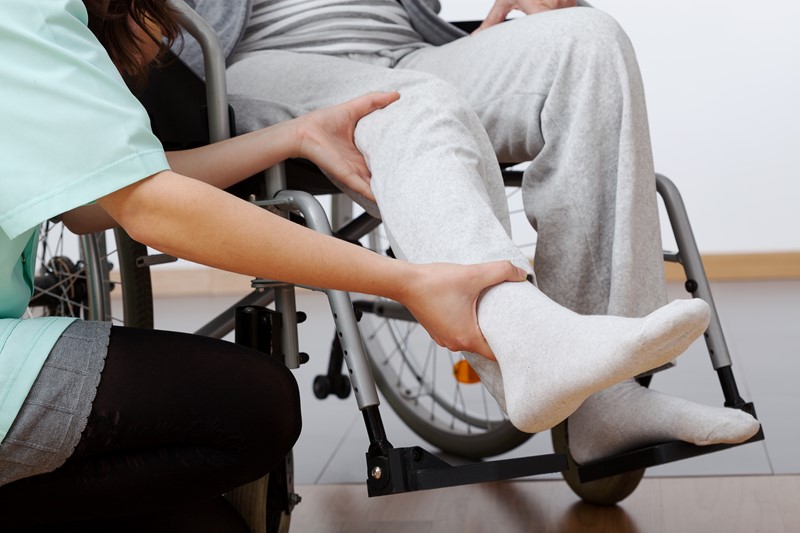Large-scale integrated digital care record projects are critical to the care integration agenda; and more than 60 are underway up and down the country. Yet these projects take time and work. Which is why, when they produce exceptional results, the lessons need to be shared as widely as possible.
At the King’s Fund’s annual digital health and care congress, Fran Draper, the engagement lead and senior project manager of Connecting Care, shared her five top tips for success.
1) Be clear about what you’re trying to achieve
The Connecting Care programme is an integratd digital care record used by health and social care professionals across Bristol, North Somerset and South Gloucestershire.
Since it went live in 2013, it has grown to give both health and social care professionals secure, role-based access to around 800,000 patient records.
To get so many organisations on board, and to get the system into daily practice, Fran says it is essential to “have a shared commitment and vision of what you would like to achieve” – and “that’s quite hard when you’re dealing with 23 different organisations [alongside 85 GP practices], each with their own agenda.”
“What I’ve learned is that there needs to be a problem to solve,” she told her audience at the King’s Fund. “It’s no good just doing a project for the sake of having something shiny and new. There have to be benefits – and those benefits may well take effort and time to realise.”
2) Make sure your leadership champions your work
Connecting Care’s partner organisations include three acute hospital trusts in the Bristol area, a trio of local authorities and community service providers, the CCG, the South West Ambulance Service, hospices and homelessness charities. This list will continue to expand as changes to the system increase its capabilities.
Creating a vision for such a diverse group, then building a system and demonstrating its benefits can only be done if there is a strong leadership overseeing a team with a disciplined approach.
“You need a really committed person at the top – a champion who’s going to help you find your way through all the different rocks and bumps that you’re going to encounter along the way,” Fran says. “Connecting Care is a very small team, so the way we have managed to do a lot of good work is by creating and then following a methodology and processes proven to work. Projects can fail if you don’t have those structures in place.”
3) Work on your personal relationships
Still, it’s not all about leadership and structures. At her breakfast meeting, Fran likened a complex interoperability project on Connecting Care’s scale to “trying to do a Rubik’s cube with boxing gloves on”. And when you’re in the middle of a complex, twisty section, it’s personal relationships that matter.
“Everybody working in mental health, social care and the NHS are really under the cosh at the moment, trying to make their own savings and achieve their own targets,” she said, to a nod of recognition from her audience.
“So, it’s very important that you have strong personal relationships in place. I work in IT, but when a project like this gets tough, I would say the most important thing for getting through it is making that human connection.”
Fran and her colleagues also take time to speak to other interoperability programmes across the country. These conversations have created vital formal and informal networks that can share best practice; and offer support.
4) Build trust
Sharing any patient data requires an immense amount of trust; both from the organisations that control and are contributing, those who are viewing the data, and from the patients, users and populations they serve.
Connecting Care has worked hard on both. It uses Orion Health technology to make sure it is working on a secure, stable platform, and has invested heavily in meaningful engagement with the relevant data controllers.
Patients have been kept on board with the project through information campaigns and a public-facing website, that explains why information sharing matters, how the whole thing works, how they can opt-out, and when they’ll be asked for their consent.
Even so, Fran says that some of the work has sometimes required people to take “a bit of a leap of faith.” “You might have some partners, who think they have information that is different to any other sort of information you are using,” she told the King’s Fund.
“But if you’ve got that trust between you by being open, clear and transparent, and they know exactly which roles at each organisation will be viewing what data, that access is role-based and audited, you can make great strides.”
5) Build good relationships with suppliers
Connecting Care has used Orion Health technology from the outset. It is built on the Orion Health open platform and has used many of its features to support specific projects.
Last year, for example, it achieved a first when it went live with one of the Care Connect FHIR APIs developed by NHS Digital and INTEROPen, to enable staff working with homeless and vulnerable people to check whether they already had a prescription for opioid replacement drugs.
Fran says her team and Orion Health now operate “like one team.” “We know their strengths, they know our strengths and we work to them,” she says. “The design of all the different bits of information is done with input from our users – both clinical and non-clinical – and Orion Health.
“Then, if we find what my boss calls ‘stones in the shoes’ then we work together to get rid of them. If there’s anything that is irritating, we’re open and honest about it. We work together to sort it out.”
Connecting Care in practice
Connecting Care drew on these lessons when it ran a project last year with the region’s major mental health provider, Avon and Wiltshire Mental Health Partnership NHS Trust. It agreed to share all its crisis, contingency and relapse plans and perinatal mental health plans via the Connecting Care system.
“That’s made a massive difference at the emergency department,” Fran explained to a conference audience that could understand just how much vision, leadership and confidence building this took. “Patients will often turn up and for a lot longer than four hours with a mental health issue.
“Previously, the health professionals didn’t know there was a care co-ordinator, they didn’t know what the plan was and now they can see all of that information to help make a better informed clinical decision.”
So, big digital projects are complex, but with the right vision, leadership and relationships in place, they can deliver big digital improvements.
“Digital transformation and the sharing of information between organisations is the only way that we’re going to be able to sustain the level of health and social care that we’re providing – and maybe even improve it,” Fran concluded.
“We’ve shown that it is possible. I think it’s essential and inevitable that people will come around to this way of working.”




